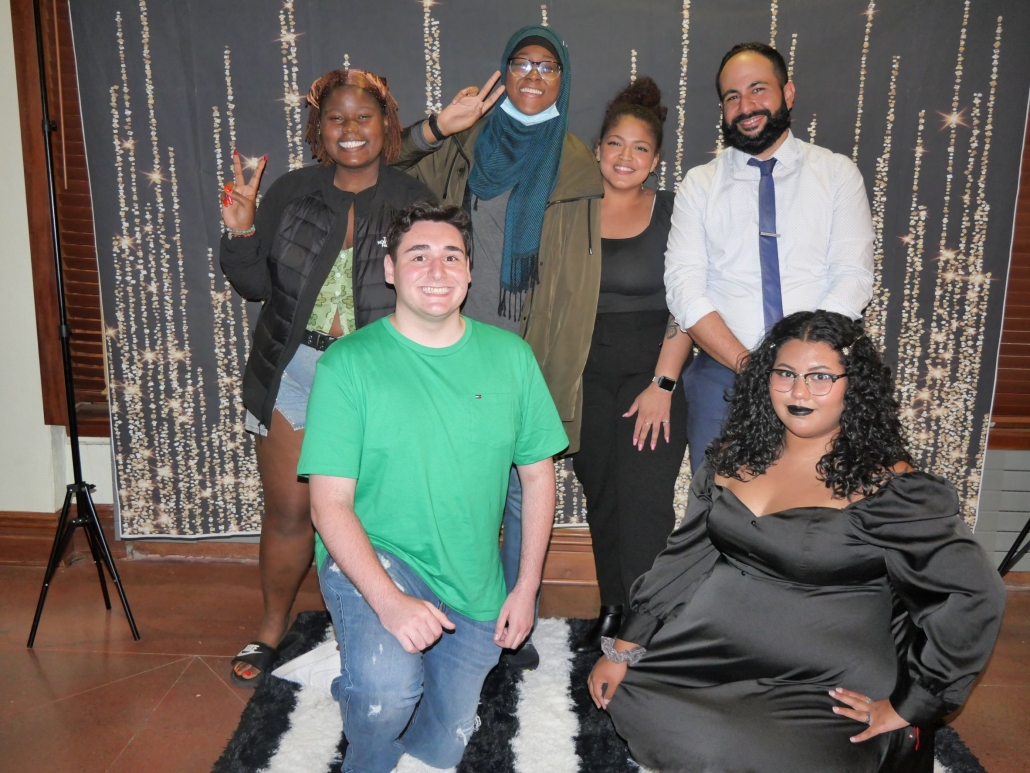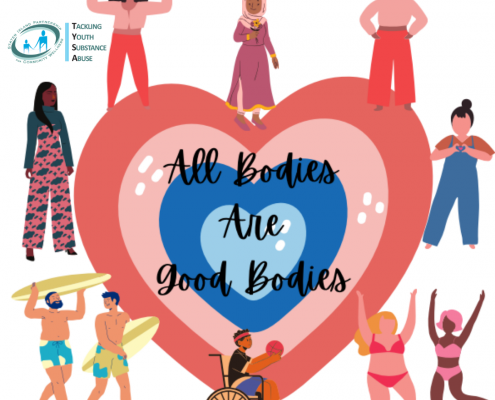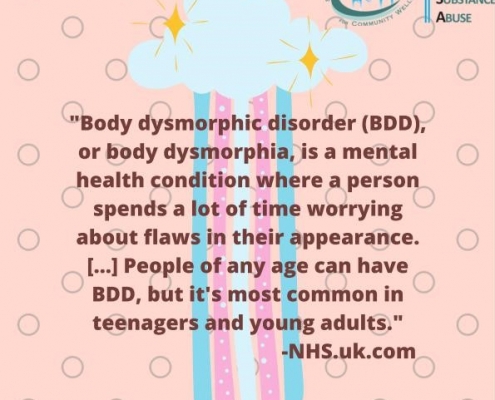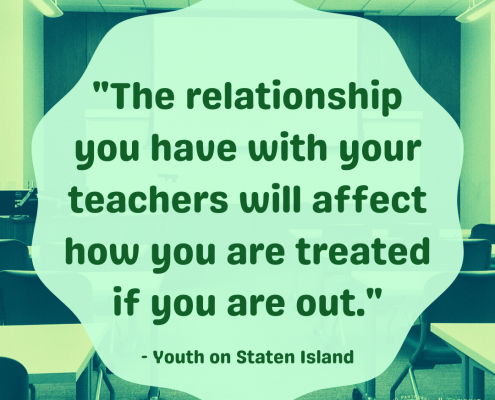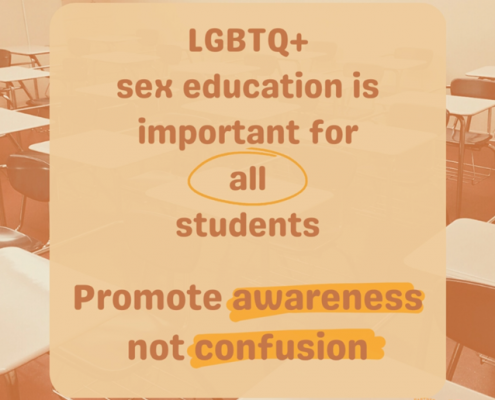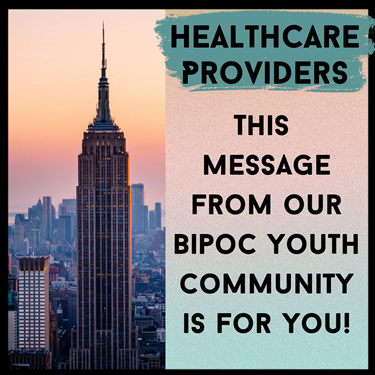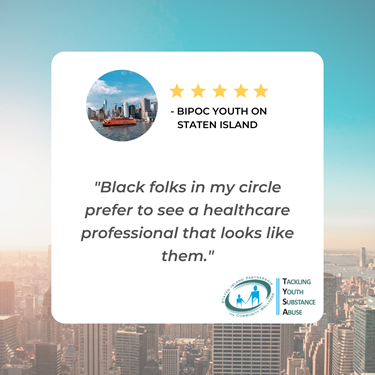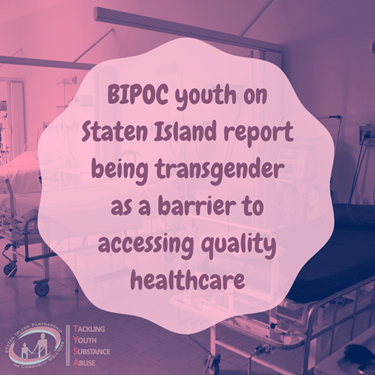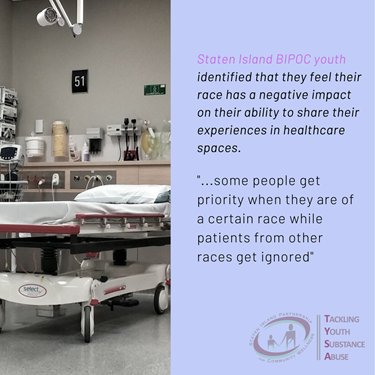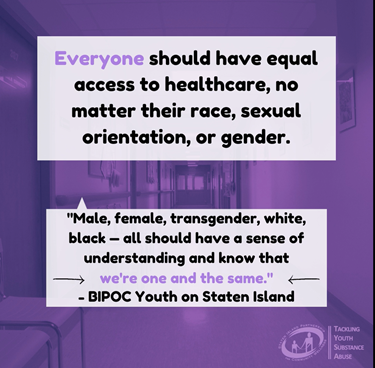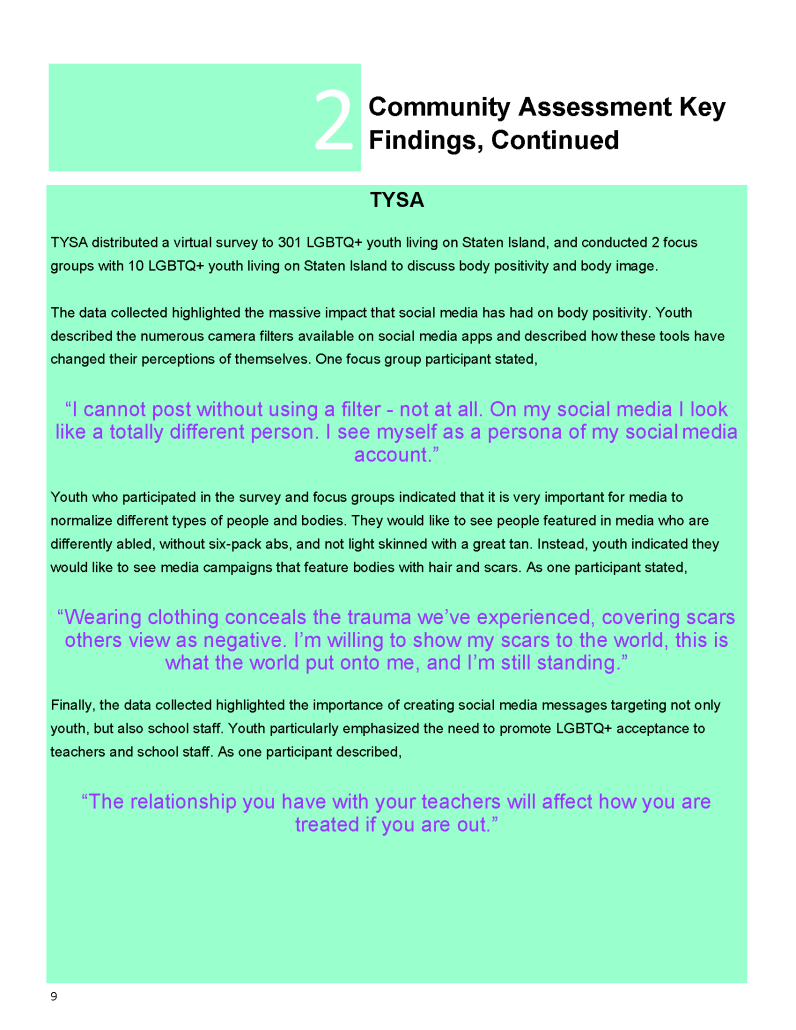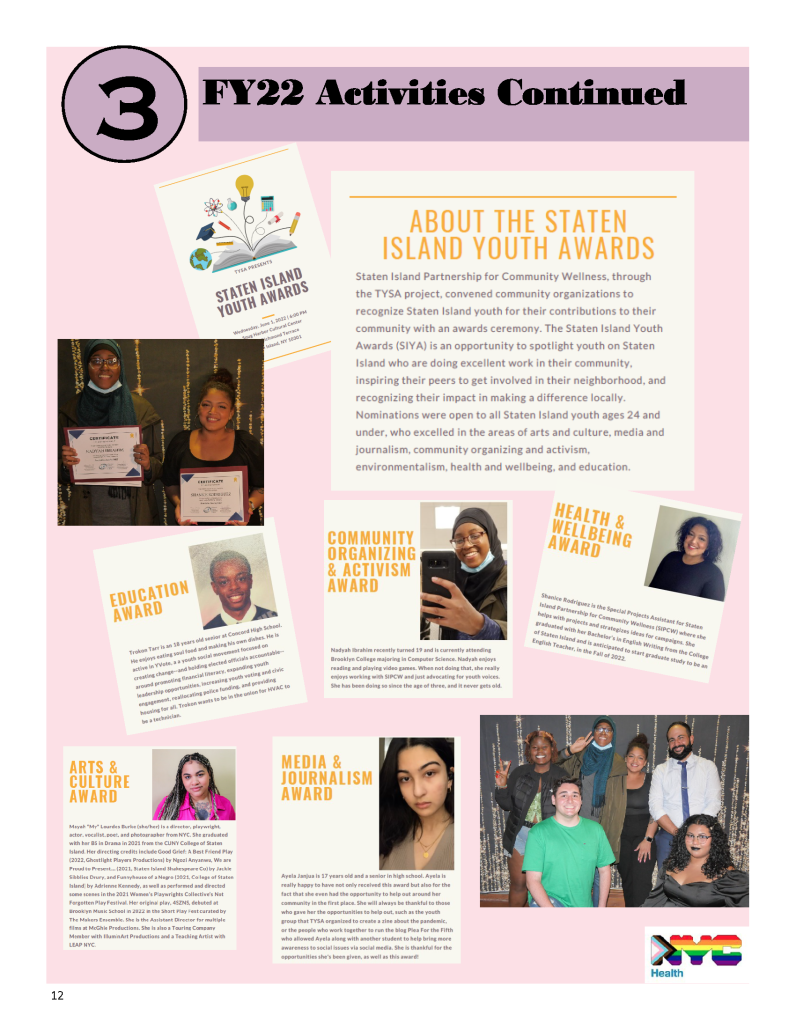Youth-Led Strategies
Youth-Led Strategies & Why They’re Important
TYSA has worked with youth in various ways in the past, through partnerships with CBO partners on SYEP projects, and through various projects with D31 schools and with colleges. TYSA has focused on elevating youth voices when possible, encouraging youth initiative and leadership in partnership with adults. TYSA emphasizes a community-based participatory  approach to youth engagement, which works to authentically engage youth from the community that are most impacted by the issues we’re working to address. TYSA works to involve youth early in the strategic planning process, and encourages creativity and boldness in finding solutions to public health challenges.
approach to youth engagement, which works to authentically engage youth from the community that are most impacted by the issues we’re working to address. TYSA works to involve youth early in the strategic planning process, and encourages creativity and boldness in finding solutions to public health challenges.
This youth-led work took a big step forward when TYSA received funding from the Coalition and Media Prevention (CAMP) Program initiative started by the New York City Department of Health (NYC DOHMH) in 2019, which is supported by the Unity Project. The CAMP initiative funded six community coalitions across the five boroughs to create environmental changes that support LGBTQ+ youth, thereby mitigating both the trauma experienced by members of these communities and the need to use alcohol or other drugs as a coping mechanism. Unlike traditional drug prevention coalitions, these coalitions are focused on risk and protective factors unique to the LGBTQ+ communities, a population that has been shown to experience adverse substance use and mental health outcomes. Youth surveillance data shows that LGBTQ+ youth are more likely to use various substances compared to their heterosexual and cisgender peers, and are also more likely to experience bullying, depression, anxiety, and suicidal ideation than their heterosexual and cisgender peers.
The CAMP initiative allowed TYSA to launch its Youth Consultants program in 2020, staffed by LGBTQ+ youth and young adults, and allies to the LGBTQ+ cause. The Youth Consultants have developed several projects to address issues affecting LGBTQ+ youth including bullying, body positivity, mental health, vaping, and more. See below for some of this work.
PROJECTS
Zines w/ Illuminart
Our zines are initiated and directed by youth, TYSA simply provides support to see them to fruition.
The Collective Voice of Staten Island Youth – A zine of written word on the resiliency of youth in the face of bullying and harassment.
Don’t Vape Yourself Away – A visual zine complete with memes and links on the health risks of vaping, perspectives on vaping from young Staten Islanders, and what can be done about it.
WE=CHANGE – As young people, we wanted to bring to light these different forms of violence because they’re not talked about enough. By building strong connections in our communities, raising awareness, and removing stigma, community violence is preventable.
All Bodies are Good Bodies Campaign
The coalition identified gender stereotyping as the risk factor for substance use it would address, a factor with particular relevance for LGBTQ+ young people. Conversations with the TYSA Youth Consultants (YC) revealed gender norms are reinforced upon youth and young adults, based on societal notions of masculinity and femininity. Young people find themselves exposed to messages about how they should look, how they should dress, and how they should feel about themselves if they don’t look or dress a certain way. To better understand the experiences of LGBTQ+ youth and young adults in regards to gender norms and body positivity, we developed a community assessment that would go on to inform this body positivity campaign distributed across social media. The campaign will raise awareness to the importance of affirming spaces, and empowering youth in their identities. The Youth Consultants have titled our campaign “All Bodies are Good Bodies.”
Barriers to Behavioral Health Campaign
TYSA Youth Consultants, and School-Based Workgroup identified minority stress, as well as physical and psychological safety in 2021 as a risk factor for substance use it would address. Youth Consultants felt that BIPOC individuals in their peer groups were experiencing minority stress, in light of the previous eighteen months of the COVID-19 pandemic, and the uprising against police violence, and sought to better understand the factors that prevent a Staten Island BIPOC youth from seeking behavioral health services.
CAMP Reports
NYC DOHMH releases an annual report highlighting the contributions of participating coalitions. Check out highlights on TYSAs work from preceding reports.


